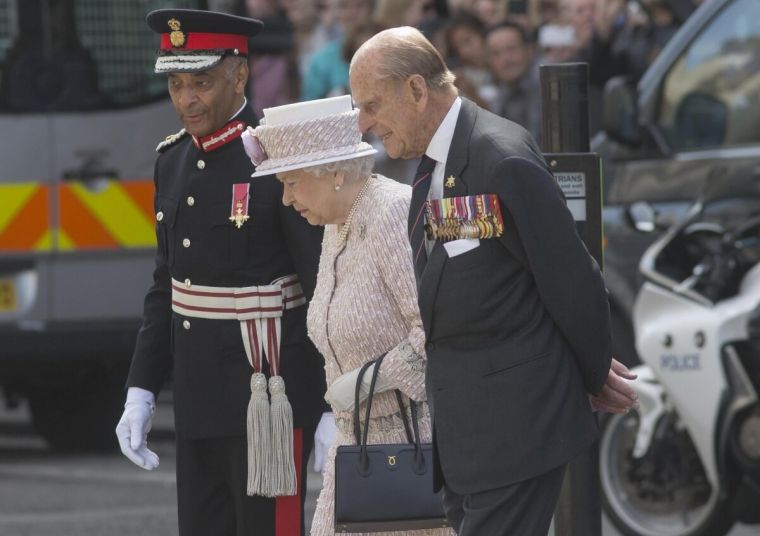Confessions of a breaking news addict: Prince Philip and the great anticlimax

Is that it?
Many tweeted it, many more thought it.
This morning social media went into overdrive with speculation about what the surprise announcement from Buckingham Palace would be. Rumours began to fly. Was the Queen about to step down? Maybe Prince Charles was giving up his place in the line of succession? Was someone gravely ill? In fact, was the Queen herself having health problems?
I'm not much of a fan of royal news, but even I was dragged in to the conversation. With Twitter full of speculation but no fact, I turned to the 24-hour news networks and was frustrated when they didn't deliver an immediate answer for me.
So then I turned to colleagues and we started to speculate together. What might be happening? An emergency announcement in the middle of an election campaign? Surely it was something big?
The subtext to our fevered conjecture was that there was a big thing happening and we needed to know about it – not because of the thing itself but because it was BIG NEWS.
I'm a journalist. News is my stock in trade and there's nothing wrong with having a keen interest in what's going on in the world. As the great 20th century theologian Karl Barth said, we need to have the Bible in one hand and the newspaper in the other. I've long suspected that if he were writing today, his aphorism would have included a smartphone or tablet to keep up with the news via social media.
As Christians we should be connected with what's happening in the world and determined to play our part in tackling the problems of it. The only way we can identify those is by engaging with the news and analysis offered by the media.
This morning, though, I'm not sure that's what I was doing. Instead of being intrigued about the news, I wasn't interested in the thing that was happening, but the fact that something was happening. News! Look everyone, there's going to be some news!
In the end, the news ended up being completely underwhelming. Prince Philip, well into his 10th decade of life, was going to be retiring from public appearances. This was not especially surprising. The reason it felt like an anticlimax was that those of us who are news junkies had been ready for our next hit of high-profile headlines.
There's a dark underbelly to that addiction that some of us have, though. What kind of news would it have taken to satisfy our needs? The story would have had to be something big enough to distract us from our day. Something significant enough to have us talking over the water cooler and maybe even with strangers.
In other words, we felt disappointed that things were as normal.
That's a dangerous place to be, because it's only a short leap to saying that really, we were disappointed that something bad hadn't happened.
Over the last couple of years there have been seismic events which have gripped the world. The election of Donald Trump and Brexit are the obvious ones, but also the refugee crisis, wars in Syria, Yemen, Iraq and beyond.
These events see real people's lives being unalterably changed and yet for me, safe in the comfort of the UK, sitting behind my screen and refreshing my Twitter feed frantically, there's a large risk that I'd rather there be some big new, any news than for boring normality to carry on.
The French Philosopher Jean Baudrillard wrote about the effect mass media was having on our perception of world events. In The Transparency of Evil, Baudrillard argues: 'At home, surrounded by information, by screens, I am no longer anywhere, but rather everywhere in the world at once, in the midst of a universal banality – a banality that is the same in every country.'
That is the risk we run – the banality of breaking news dulls us to the real events taking place and the real people affected by them.
As Christians, we should be in the world but not of it. In the same way, we should be interested in breaking news, but not defined by the excitement of the new. Rather we should care about the issues behind the headlines – even though they rarely trend on Twitter.
Follow Andy Walton on Twitter @waltonandy











